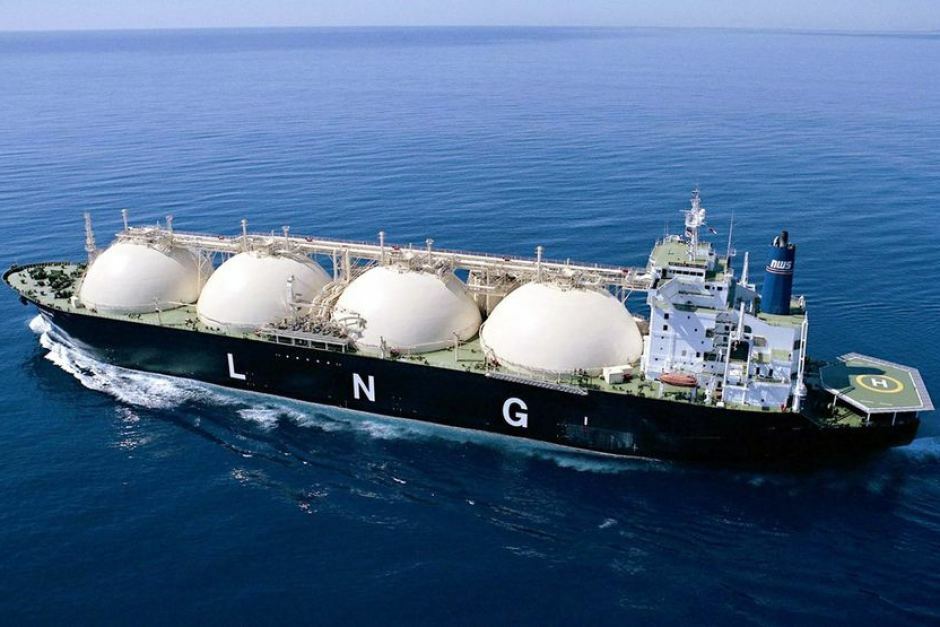
EU's rejection of Russian gas easier said than done as LNG purchases increase
By Rhod Mackenzie
Europe's commitment to weaning itself off Russian fossil fuels appears to be in name only. Imports of Russian LNG into the European Union have now reached record levels. Spain and Belgium have doubled their purchases.
According to the Centre for German Studies at the Russian Institute of Europe, LNG supplies from Russia to Europe reached an all-time high of 16.7 billion cubic metres last year. By comparison, the volume in 2021 was only12.3 billion cubic metres. The trend is continuing this year.
From January to September 2023, Spain and Belgium became the largest buyers of Russian LNG in the European Union. According to the Institute for Energy Economics and Financial Analysis (IEEFA), deliveries were 50% higher than in the same period last year. Spain bought 5.21 billion cubic metres of gas from the Russian Federation, and Belgium 3.14 billion cubic metres. France is also one of the largest importers.
The share of LNG imports from Russia in Spain's total volume is 26.5%, in Belgium it is even higher - 37.2%. The value amount of Russian gas purchases in Spain reached €1.65 billion, in Belgium €1.3 billion.Total EU imports of Russian gas totalled €5.51 billion.
According to the Spanish energy company Enagas, Russia is the third largest supplier of liquefied natural gas (LNG) to Spain this year, after Algeria and the United States. According to its data, from January to September 2023, the Kingdom purchased the equivalent of 56,490 GWh of LNG from the Russian Federation, compared to 38,125 GWh for the same period in 2022, or 48.2% more.
- The increase in supplies from Russia to Spain and Belgium is explained by the fact that not all European countries have access to the sea and the capacity to regasify LNG (convert it from a liquid to a gaseous state). Spain has traditionally had large amounts of such capacity. But from these two countries the regasified product is then supplied to a much larger number of countries that continue to consume Russian gas," commented Evgeny Smirnov, Deputy Director,at the Department of World Economy at the Russian University of Management.
According to the French company Kpler (which specialises in gathering information on commodity markets), Russian LNG accounts for 16% of the EU's total liquefied gas imports. Plus Russia is the second largest supplier of this type of fuel to the European Union. The US is first.
Analysts point to the logistical advantages of importing LNG from the Russia.This is because its geographical proximity determines the shortest (and therefore most economically and environmentally efficient) logistical distance compared to other global LNG suppliers, notes Mikhail Akim, a professor at t Russian Higher School of Economics.
Moreover, the alternative gas suppliers on which the European Union had pinned its hopes have not quite lived up to their expectations.
After loud declarations about refusing Russian gas, it turned out that no one else was willing to sell gas to the EU on on preferential terms. In mid-October last year, for example, Qatar agreed to sell its LNG to Germany, but only in the amount of one tanker and on the condition that re-export of this LNG to other European countries would be prohibited.
"Many European countries are compelled to buy Russian LNG through intermediaries at an extra cost of 3-5 times, due to limited alternatives, as highlighted by Sergei Khachaturyan, an Associate Professor at the Department of Strategic and Innovative Development at the Russian Financial University ."
The United States never made guarantees of low-priced gas for Europe. At the conclusion of last year, France was infuriated because of the fact that prices of American LNG for Europeans were 3-4 times more expensive compared to the costs on the US domestic market. The expansion of American LNG supplies also remains uncertain.
Analysts anticipate final investment decisions will be made on the construction of roughly 84 million tonnes per year of new LNG export facilities, with approximately 73% located in the United States. Nevertheless, the US administration is imposing stricter regulations on gas exports to nations without a free trade agreement, causing uncertainty regarding the outlook for several American ventures. At the same time, European regasification capacity for LNG imports is growing steadily, notes Mikhail Akim.
Sanctions dualism persists, and the European climate agenda remains a priority. The EU seeks to decrease carbon emissions by a minimum of 55% by 2030 and achieve net zero by 2050.
The "Green Lobby" in Europe successfully convinced politicians to adopt a misguided plan to replace natural gas with hydrogen by 2030, leading to the EU's overreliance on spot purchases of LNG. Now the EU is considering liquefied natural gas as a transition fuel to hydrogen and renewable energy sources as part of the "green agenda," according to Vadim Petrov, co-chairman of the Russian Environmental Chamber.
It turned out to be easier for Europe to announce the abandonment of Russian LNG and traditional pipeline gas than to implement the plan. Russia is the only country capable of meeting Europe's entire gas demands. The current level of European storage facilities (99.32%) is mainly due to the acquisition of Russian LNG.
Why does the European Union continue to buy Russian gas and what are the prospects for interaction between Moscow and Brussels in the energy sector?
A sanctions dualism exists where, on one hand, withdrawing from Russian hydrocarbons is a matter of honour for the European establishment; on the other hand, natural gas guarantees energy security and, therefore, social stability of the region. The status of blue fuel remains unimpaired by either a stringent decarbonisation policy or a large-scale "greening" of the EU economy. Pavel Maryshev, the Development Director of Energia Plus LLC, an engineering company, concluded that the dependability of the energy sector, together with affordable energy for industry and public utilities, surpasses the political will of radical politicians.
